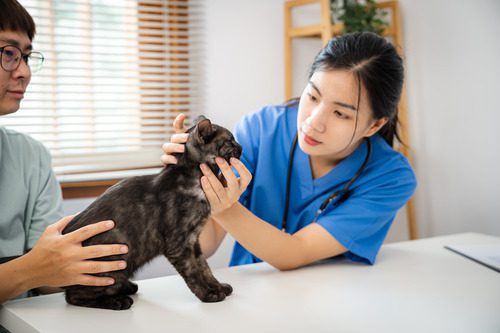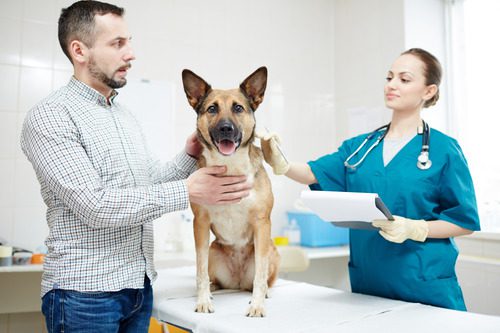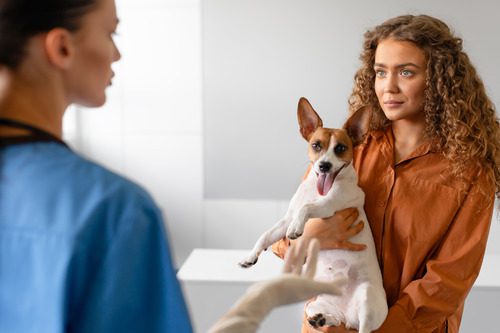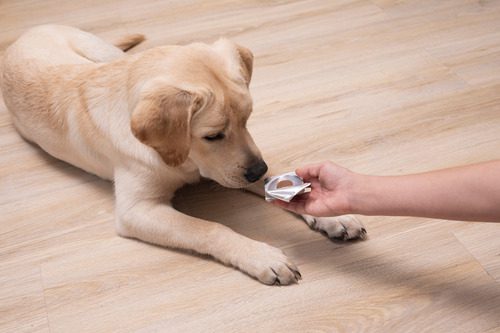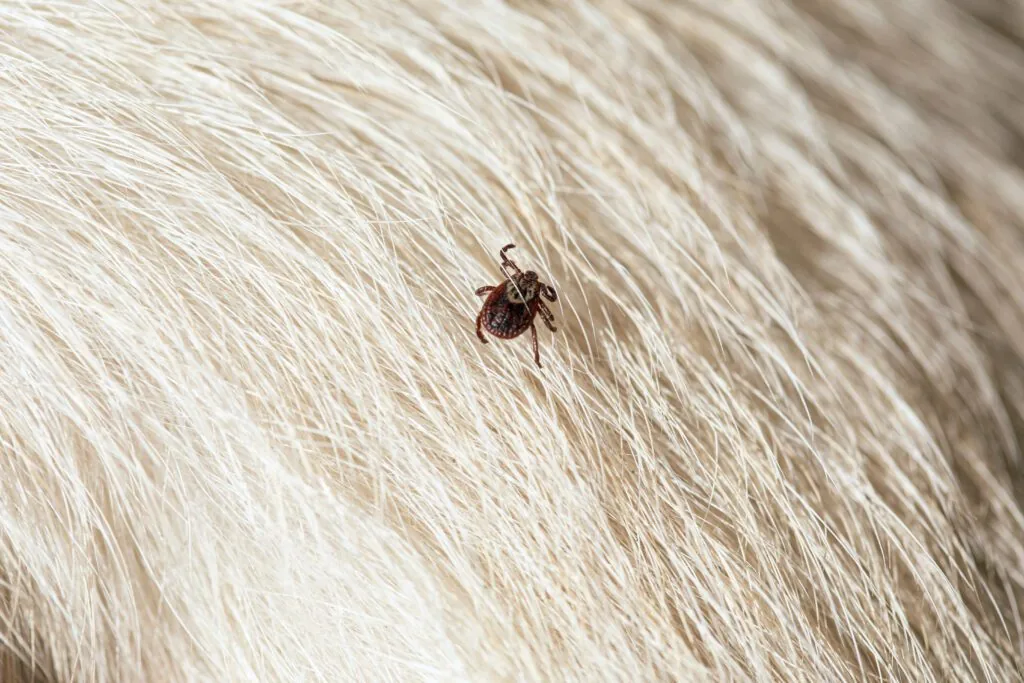While it can seem impossible, your cat can become constipated and suffer discomfort and health risks related to this condition. Pet owners sometimes forget that animals are not intended to eat the kibble-style food that we feed them for convenience. While kibble diets are designed to be balanced and correct for your cat’s nutritional needs, they can be the underlying reason to cause your cat constipation.
There are other reasons your cat might be constipated, ranging from something simple like drinking too little, to a blockage. Making sure that you attend to your cat’s constipation issue right away is important to prevent secondary problems related to liver and kidney function that can happen. Dehydrated cats are not healthy cats, and this is a common side effect of constipation in cats.
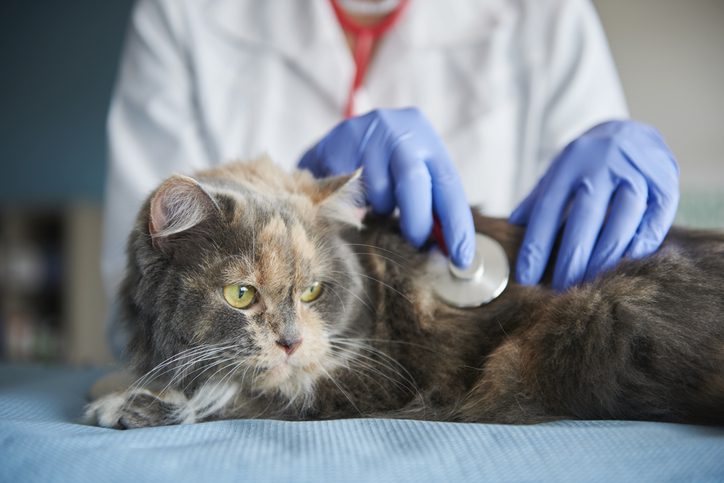
Symptoms of Cat Constipation
One of the most common symptoms of this condition is behavioral. Owners will report that their cat is getting into and out of the litter box frequently and that they seem to be unable to produce any stool. Lethargy and lack of appetite can also be common symptoms of constipation. In more serious cases, your cat might cry or scream in the litter box or simply stand there straining, unable to defecate.
Cats that experience intermittent constipation might vomit, seem to be losing weight, or have hair loss as well. Constipation can sometimes be less obvious than you would think because cats are often very private about their bathroom behavior. If your cat has not been making it obvious that they are straining or uncomfortable when they are going to the bathroom, you might only see signs that they are feeling discomfort or pain along with reduced appetite.
Causes and Treatments for Constipation
There are many different treatment options, and it is best to talk with your veterinarian to come up with the best plan for your cat’s needs.
Blockages
Cats that are constipated should visit the vet to be certain that there is nothing more serious, like a blockage, that is causing their constipation. Blockages almost always have to be removed via surgery, so you will want to make sure that this is not the reason for your cat’s discomfort before you try other treatments. Your vet can run diagnostic tests to rule out other reasons for your cat’s constipation, and they can also give your cat some IV fluids to help with dehydration.
Changes in Food
Food modifications are a common treatment for constipated cats. This can mean trying out a new kibble brand, moving your cat to wet food, or feeding them a raw diet. This kind of dietary change can also be helpful in preventing bladder stones and other dietary issues in older cats. Some cats simply cannot process the various additives that bind the kibbles and make them flavorful, which can lead to constipation.
Help Your Cat Relax
In cats that are constipated due to anxiety, there are some medications that can be used to calm them, and you can adjust their environment to make them more comfortable. In some cases, the litter box might be in a spot that your cat does not feel safe accessing, and this can lead to constipation. Moving the litterbox to a better location that is quieter and more secure can sometimes be all that is needed to put your cat at ease.
Probiotics
Probiotics can also be a big help in cases where cats have been experiencing long-term but mild constipation. These little bacteria will promote a healthy gut flora and get your cat’s digestive system back on track. Fiber-rich foods can also help and adding a teaspoon of canned and pureed pumpkin to your cat’s food once a day can make a big difference in episodic constipation.
Increase Your Cats Activity
For cats constipated due to the lack of activity, getting your cat to be more active and cutting back their food each day can also make a big difference. Your vet might be able to recommend a diet food that will keep your cat thinner and help their body to process their food properly. This can also be an issue for cats that overeat out of boredom as well, which might mean that your cat cannot be allowed free-choice access to food all day long.
Laxatives
Your vet will be unlikely to prescribe laxatives for your use at home. If your cat needs this treatment, it will likely be kept overnight at the animal hospital for observation. Cats are not often very receptive to this treatment, and it can lead to other health concerns like severe dehydration. Always be cautious about administering any kind of extreme treatment like this at home since you might cause a much more serious secondary health risk through the use of these methods to try and deal with constipation.
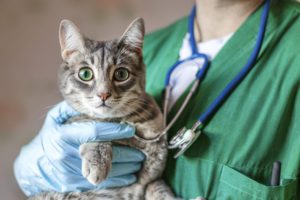
Cat Constipation Can be Serious and Needs Immediate Attention
If your cat has started showing signs of constipation, you should consider taking them to the vet right away. Treating constipation in cats early can help make sure that your cat does not suffer long-term and serious consequences related to their condition. Cats are very prone to dehydration, which can be life-threatening when they are constipated, and they can also experience permanent damage to their colon. Caring for a constipated cat is often easy when the issue is caught early, and usually, a change in diet is enough to take care of the problem.
Make sure that you monitor your cat’s overall behavior and check on their litter box visits if they seem lethargic or like they have a reduced appetite. Your cat might not be severely constipated at first, which can make it hard to tell that this is the real issue that you are dealing with. Always make sure that the litter box is in a location where your cat can easily access it and where they will feel safe using it as well. Caring for a cat with constipation can be easy when you catch this condition early and seek the support of your veterinarian.
Call your Birch Lake Animal Hospital veterinarian at (651) 426-2246 or make an appointment online!
Recent Posts
About Birch Lake Animal Hospital
The staff at Birch Lake Animal Hospital seeks to provide the best possible medical care for our highly-valued patients and clients.

